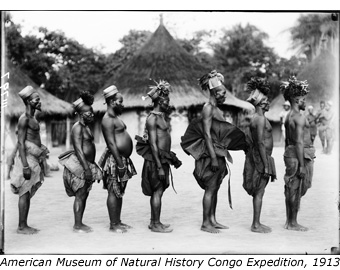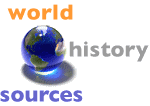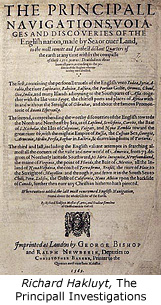|
|
||||
|
Like all other historical documents, travel accounts are highly problematic sources of information. There are numerous reasons why it is impossible to accept the testimony of travel accounts at face value. Sometimes authors of travel accounts did not notice, or were not able to notice, or perhaps were not even permitted to notice certain aspects of the societies they visited. Sometimes they were sloppy or did not take the trouble to investigate carefully the societies they visited. Sometimes they felt such a deep commitment to their own societies that they tendentiously misinterpreted or misrepresented the lands they visited. Occasionally they took as their principal interest the critique of their own societies, so they exaggerated the virtues of the lands they visited. To some greater or lesser extent, all travel accounts reflect the biases, prejudices, and interests of their authors.
Considering the importance of travel accounts as historical sources, it is peculiar that scholars have devoted little attention to the analysis of travel writing. Historians have provided insightful studies of individual travelers, and literary scholars have discussed travel writing as a literary genre. Rare, however, are studies that focus on the nature of travel accounts more generally, their historical influence, their meaning as expressions of their times, and the problems they raise as historical sources.
Recent scholarship has sometimes gone so far as to view travel accounts as works that basically reflect their authors’ interests and fears under the guise of describing foreign lands and peoples. The main source of inspiration for this line of analysis is the work of Edward W. Said, especially his powerful and controversial study, Orientalism. Said charged that European and Euro-American scholars and other experts, including travelers, had systematically misrepresented Muslim peoples and societies by characterizing them as irrational, stagnant, exotic, effeminate, and mired in tradition. This characterization derived not from objective observation, Said argued, but rather from a rhetorical tactic: European and Euro-American experts misrepresented Muslim peoples and societies in order to distinguish themselves from the foreigner and characterize themselves as rational, dynamic, masculine, and thoroughly modern. Although Said concentrated on misrepresentations of Muslim peoples in Orientalism, the book’s critical analysis suggested new ways of thinking about characterizations of African, Asian, American, and Oceanic lands in European and Euro-American travel accounts.
Orientalism helped inspire a distinctive literary analysis of travel accounts. In her book, The Witness and the Other World, for example, Mary Campbell studied medieval European travel accounts, including works by pilgrims, merchants, and explorers. She interpreted these works in light of the Crusades, European expansion in the early modern era, and European domination of the world in modern times. By her account, pilgrimage and the quest for trade directly foreshadowed crusade and conquest, so Campbell viewed medieval travelers themselves as agents of European imperialism. In her own book, Imperial Eyes: Travel Writing and Transculturation, Mary Louise Pratt offered a similar analysis of European travelers who visited Africa and South America during the 18th and 19th centuries. According to Pratt, accounts of these travelers contributed to imperialism by producing for imperialist readers a world that was ready for European domination.  Studies by literary scholars such as Said, Campbell, and Pratt have effectively established relationships between travel accounts and imperial projects. A critic might suggest, however, that in doing so, they have reduced travel to imperialism and travel writing to imperialist propaganda. A critic might suggest further that they have focused attention so resolutely on European travel and travel writing that they have lost sight of the larger global context of travel and travel writing, which were by no means monopolies of European and Euro-American peoples. In effect, they have offered insightful but nonetheless Eurocentric analyses of European travelers.
In her book Ulysses’ Sail: An Ethnographic Odyssey of Power, Knowledge, and Geographical Distance, anthropologist Mary W. Helms offers an alternative approach, which clearly recognizes connections among travel, travel writing, and imperialism, but situates European travel accounts in larger global and thematic perspectives. Helms observes that foreign travel and knowledge acquired from distant lands have often had large cultural and political implications in travelers’ own societies. While they undoubtedly often served imperialist interests, travel experience and travel reporting also had potential to raise travelers’ status and influence in their own societies. Travel to distant parts always reflects some kind or combination of interests, be they political, social, economic, cultural, or some other kind, and indeed these interests fuel the human urge to travel in search of communication and exchange. But travel does not reduce simply to imperialism, nor travel accounts to imperialist propaganda. In Old World Encounters: Cross-Cultural Contacts and Exchanges in Pre-Modern Times, Jerry H. Bentley takes a similar approach, drawing on travel accounts to illuminate processes of cross-cultural communication and exchange in premodern times. |
||||||||||
|
finding world history | unpacking evidence | analyzing documents | teaching sources | about |
||


 Many studies have accepted travel accounts as documents that justified political and economic expansion. They have presented travelers themselves as intrepid explorers, often {but not always} heroic and usually {but not always} male. During the 19th and 20th centuries, when European and Euro-American peoples dominated most of the globe, many scholars viewed their traveling ancestors who struck out from home and reconnoitered the distant corners of the world as the advance agents of modernity. Eloquent testaments to this view are the hundreds of historical travel accounts published since 1846 by the Hakluyt Society of London. Richard Hakluyt himself, who published his own collections of travel accounts in the 16th century, viewed travel accounts as especially effective tools for the promotion of political and economic expansion. Many of the travel accounts published later by the society bearing Hakluyt’s name contributed to a dense web of documentation that served to legitimize a prominent European and Euro-American presence in the larger world.
Many studies have accepted travel accounts as documents that justified political and economic expansion. They have presented travelers themselves as intrepid explorers, often {but not always} heroic and usually {but not always} male. During the 19th and 20th centuries, when European and Euro-American peoples dominated most of the globe, many scholars viewed their traveling ancestors who struck out from home and reconnoitered the distant corners of the world as the advance agents of modernity. Eloquent testaments to this view are the hundreds of historical travel accounts published since 1846 by the Hakluyt Society of London. Richard Hakluyt himself, who published his own collections of travel accounts in the 16th century, viewed travel accounts as especially effective tools for the promotion of political and economic expansion. Many of the travel accounts published later by the society bearing Hakluyt’s name contributed to a dense web of documentation that served to legitimize a prominent European and Euro-American presence in the larger world.